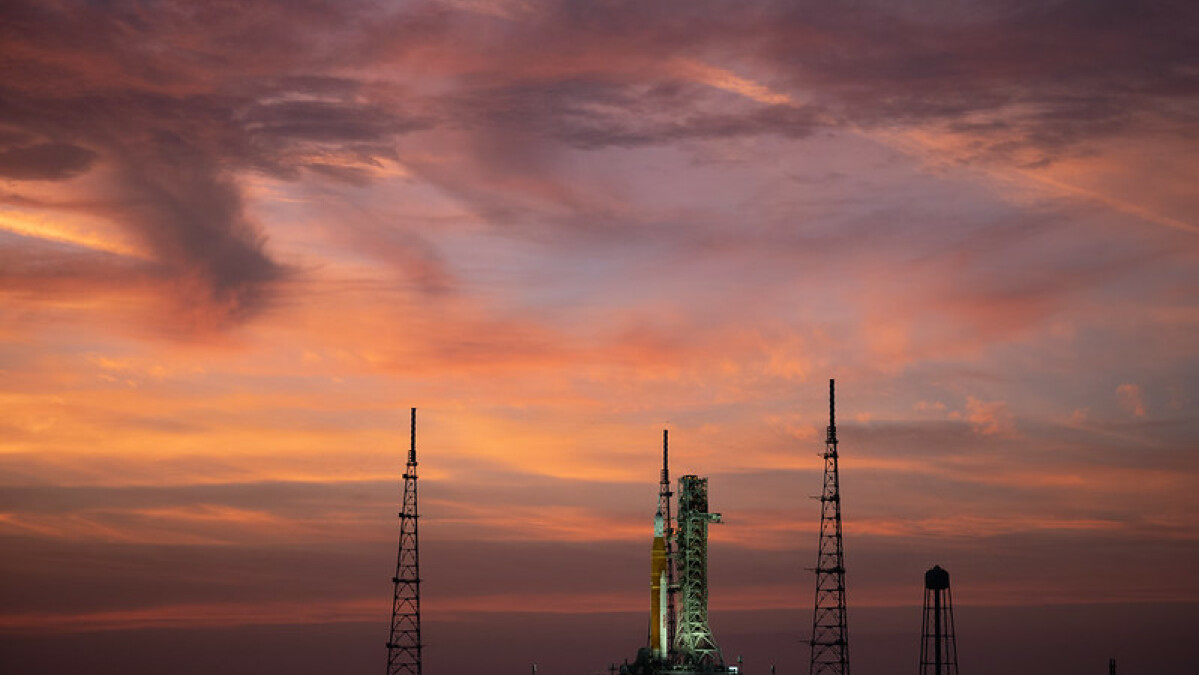If this NASA launch vehicle could talk — say at an international consortium of the world’s most elite, hobnobbing space rockets — this is how it would introduce itself after filling out its “Hello, my name is” sticker.
Space Launch System? Bleh, only my mother and technical manuals call me that.
SLS? Not since grade school.
Please, friends call me Moon Rocket. Mega Moon Rocket.
Technically, this gargantuan is the U.S. space agency’s Space Launch System or SLS for short. But somewhere along the line, the mission crew stopped calling it by its given name and started referring to it by its badder, Transformers-ish nickname. Even the news releases from the agency use it now.
When asked recently who was responsible for coining it, though, the agency wasn’t really sure.
Maybe the PR folks? Reporters?
“I don’t think it’s an official thing, so hopefully we haven’t gotten in trouble by using it,” said Tom Whitmeyer, deputy associate administrator for common exploration systems development, during a call with reporters in April. “I like it because it’s a good way to talk about the rocket. It is a really big rocket.”
NASA will try again on a crucial launchpad test of its mega moon rocket after a series of problems surfaced this spring involving bad valves, faulty fans, and leaks.
After making repairs, the agency is ready for take two and plans to begin the so-called wet dress rehearsal for the first lunar Artemis mission at about 5 p.m. ET Saturday. The demonstration is referred to as “wet” because it involves filling the tanks with hundreds of thousands of gallons of liquid fuel. The test is expected to take about two days, with video and commentary available to the public on Monday. (For coverage, watch the live video stream below.)
Some numbers to give a sense of just how mega Mega is:
It’s been a long time since NASA had a rocket of this magnitude, capable of sending heavy loads of cargo and astronauts into deep space. Not only is it built to travel to the moon, it’s expected to one day send the first crewed flight to Mars. Robotic scientific journeys to Saturn and Jupiter also could be on tap.
NASA is readying Mega for Artemis I, a test in its own right and the first in a series of planned voyages. The aloft Orion spacecraft will fly around the moon, then splash down in the Pacific Ocean three weeks later. The purpose is to demonstrate its ability to safely reenter Earth’s atmosphere and drop into the correct spot for the Navy to recover.
Though the upcoming launch won’t include astronauts, the monthlong flight will allow the United States to send a crew on the next, more complex Artemis mission.
“We thought we’d just go and run with it.”
As for the problems NASA encountered during its first wet dress rehearsal, Whitmeyer said those come with Mega’s territory.
“That’s the kind of challenge you only see with something like a mega moon rocket,” Whitmeyer said. “I don’t think you kind of see those types of challenges with a rocket that’s not that size.”
The rehearsal will run the Artemis I launch team through operations to load fuel in the rocket’s tanks, conduct a full countdown, demonstrate the ability to stop and restart the countdown clock and drain the tanks.
Regardless of who gave Moon Rocket — Mega Moon Rocket — its nickname, it appears to be around for the long haul.
“We thought we’d just go and run with it,” Whitmeyer said.
